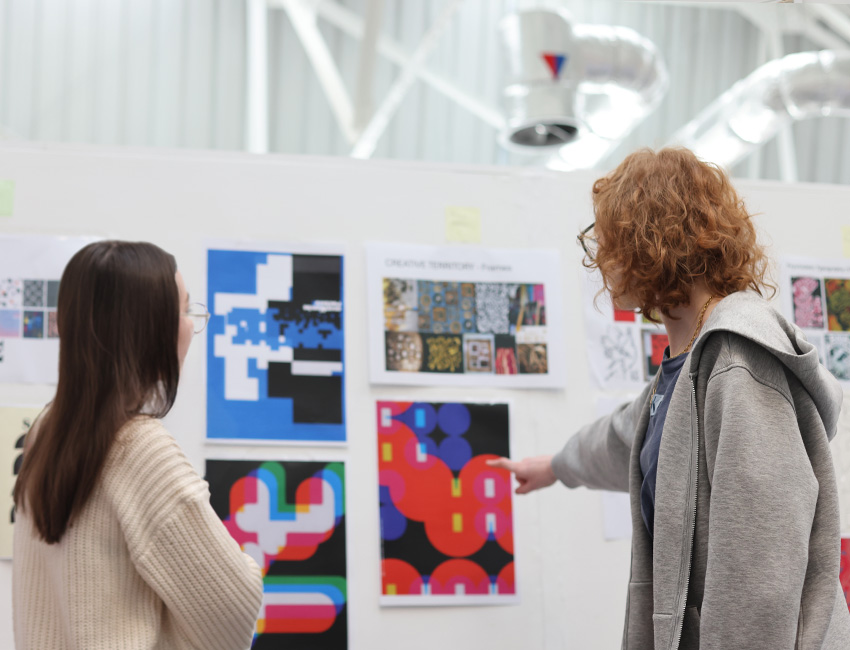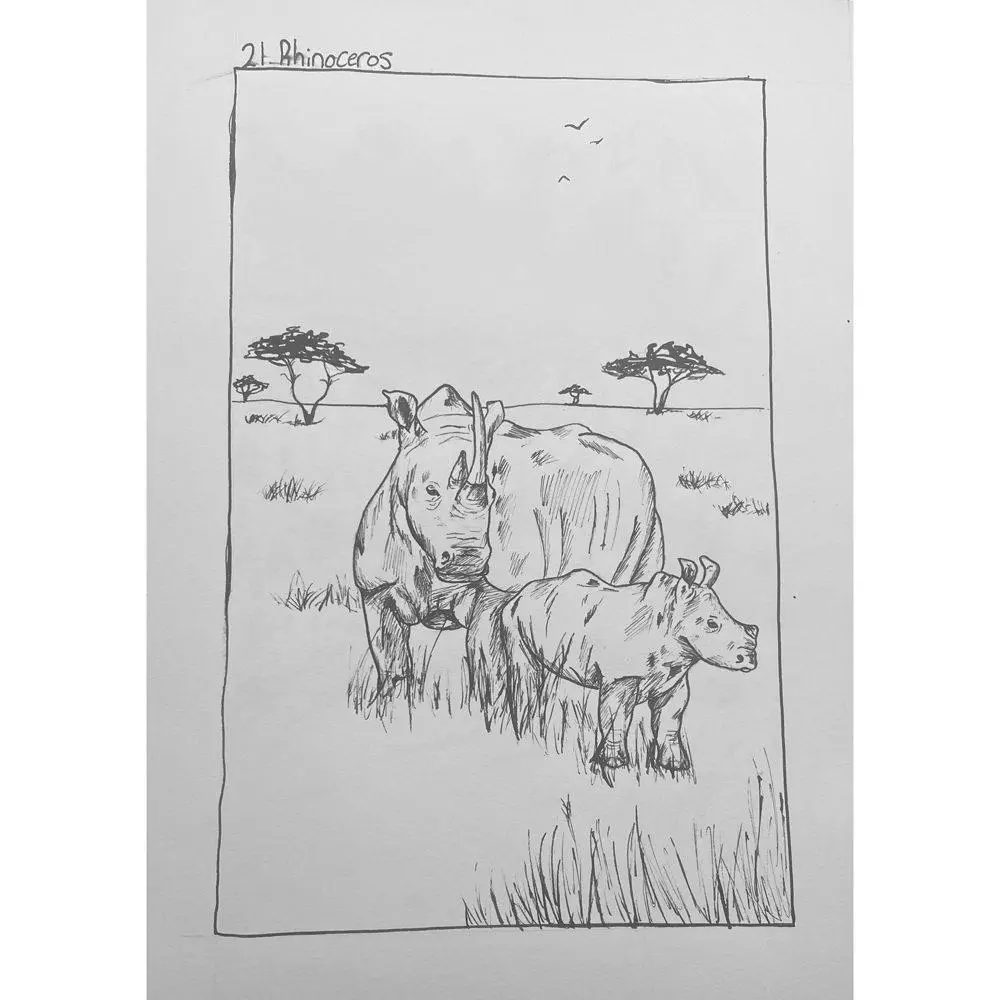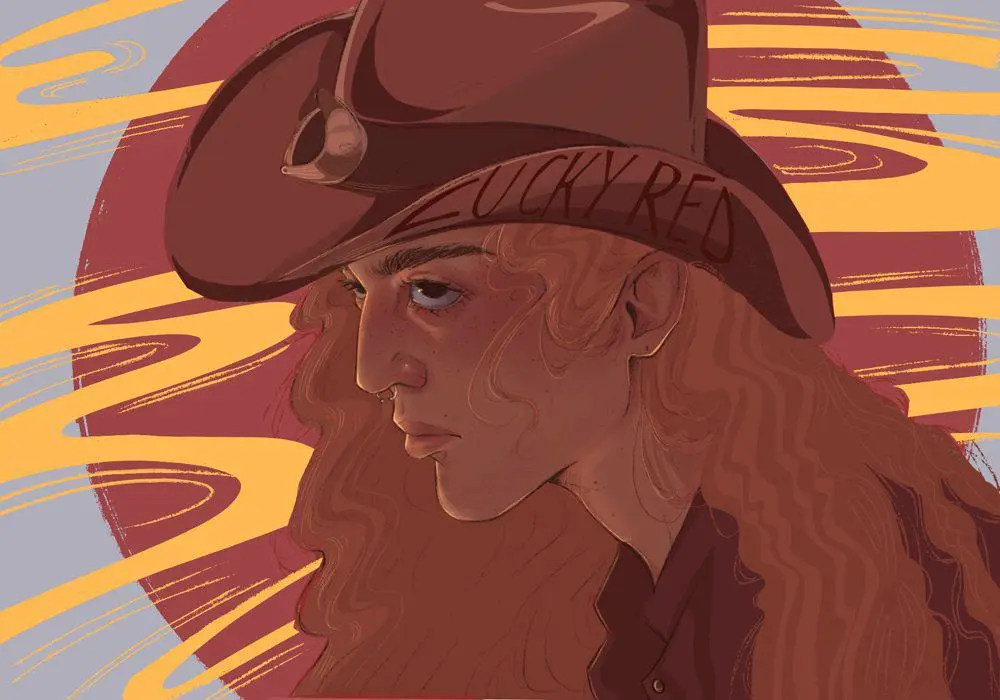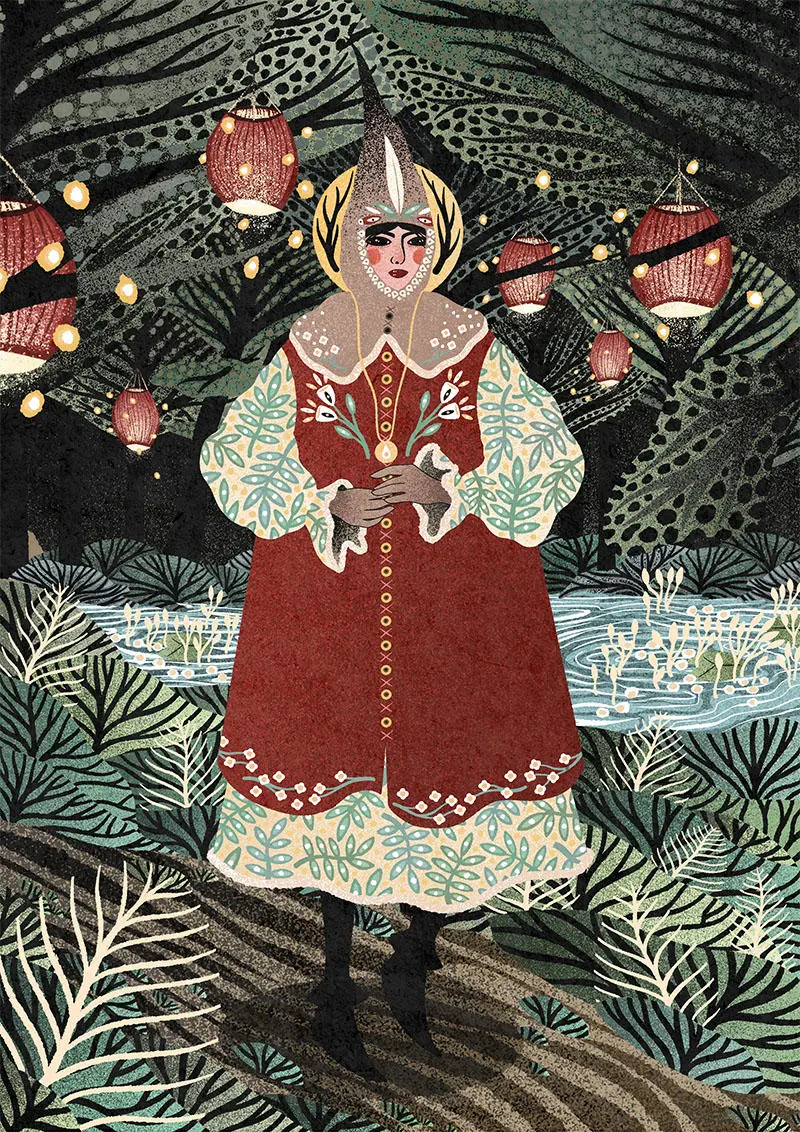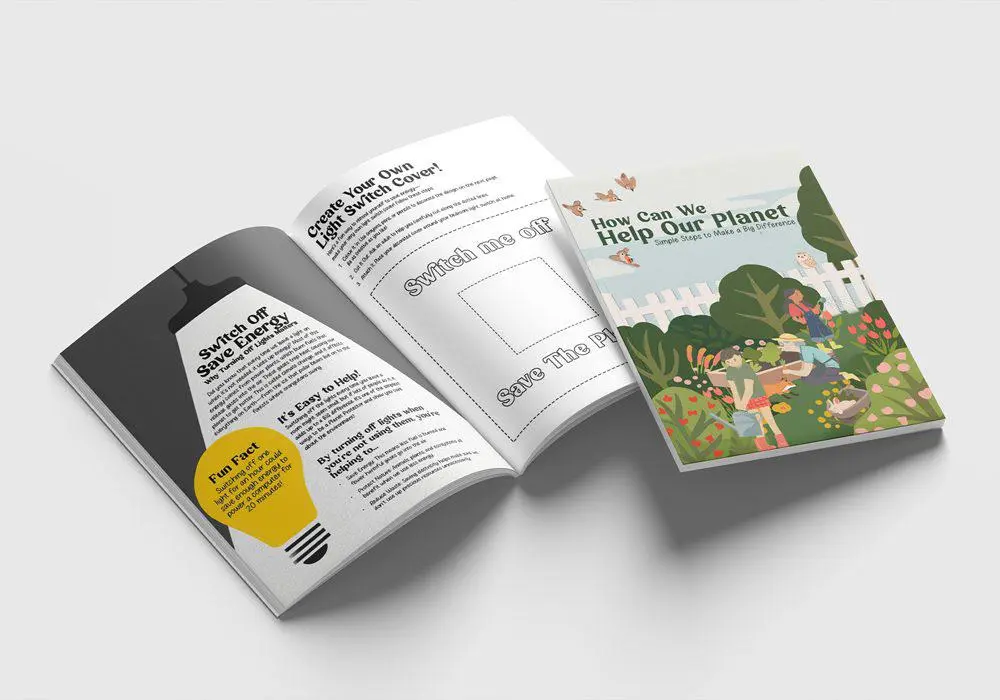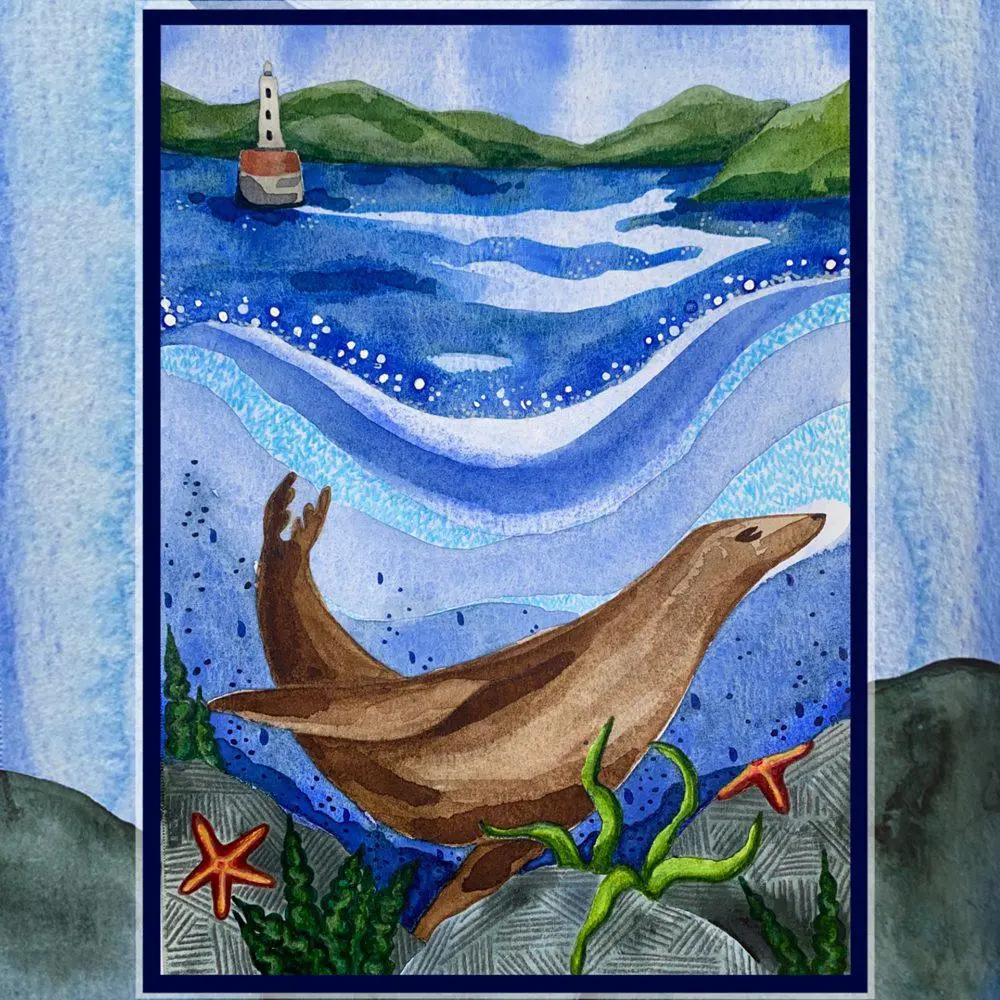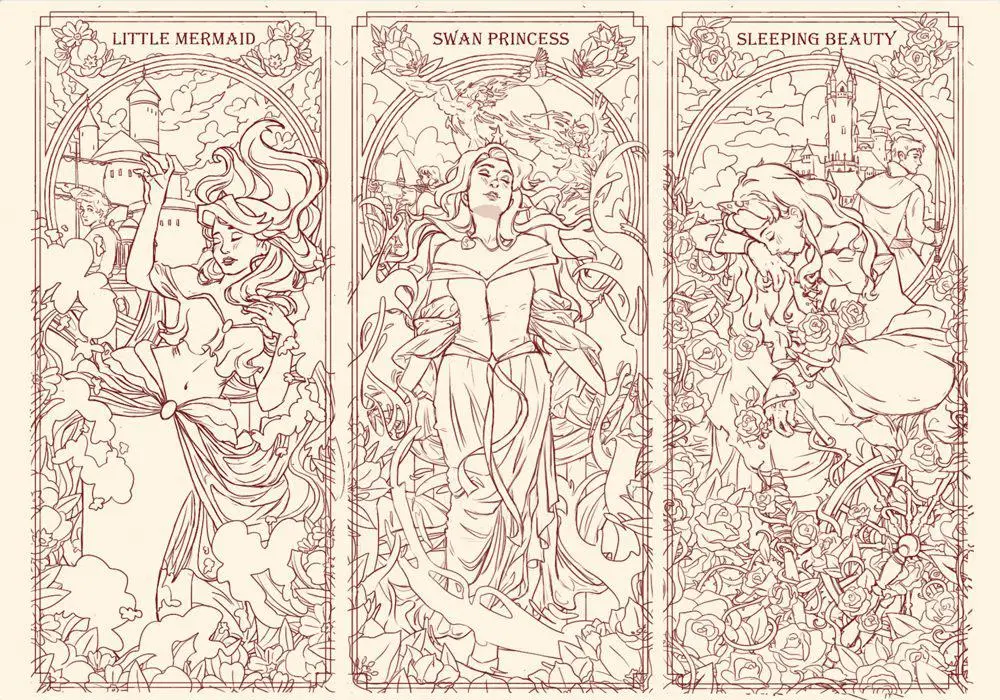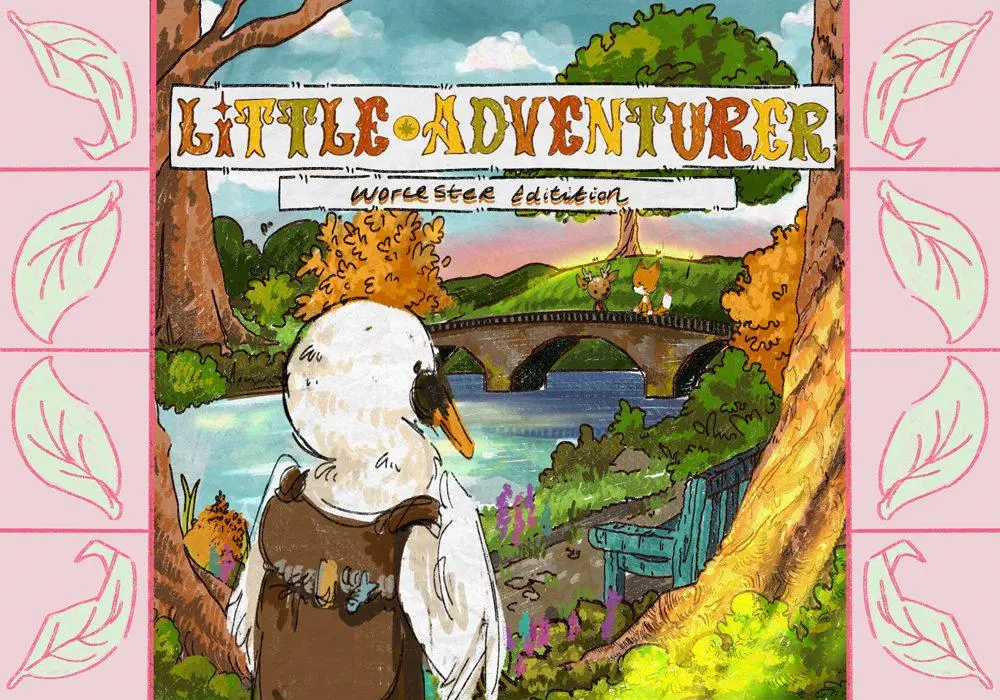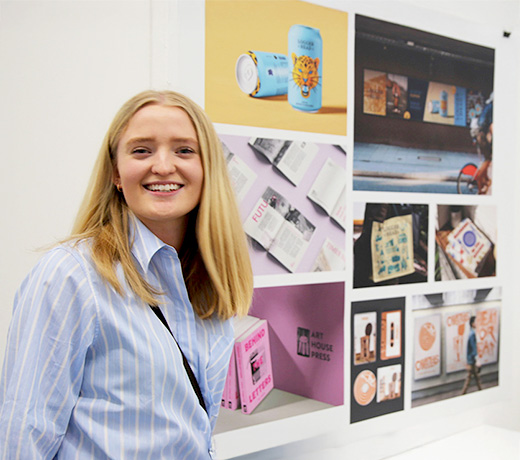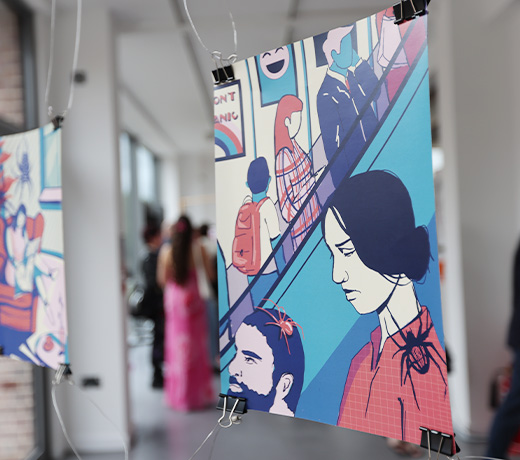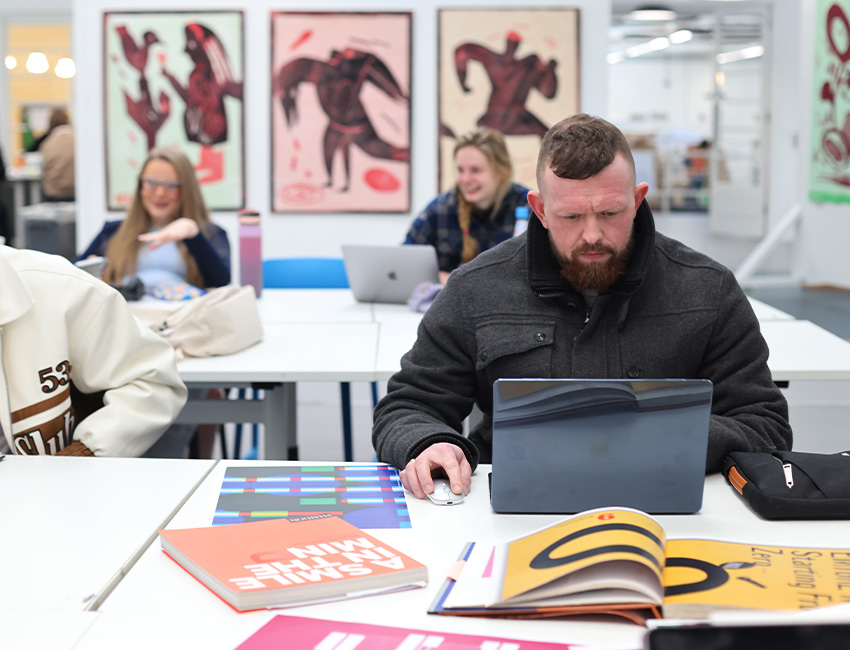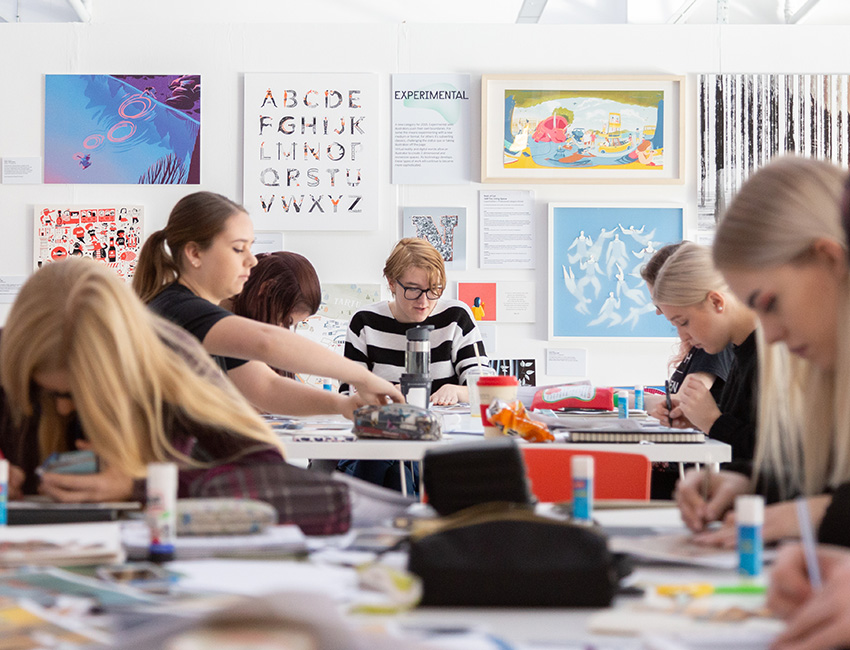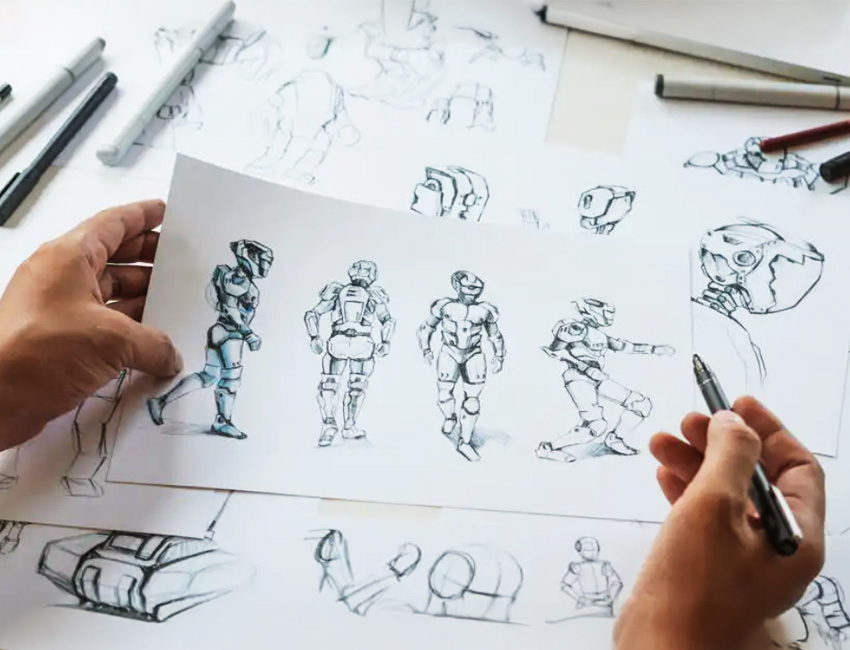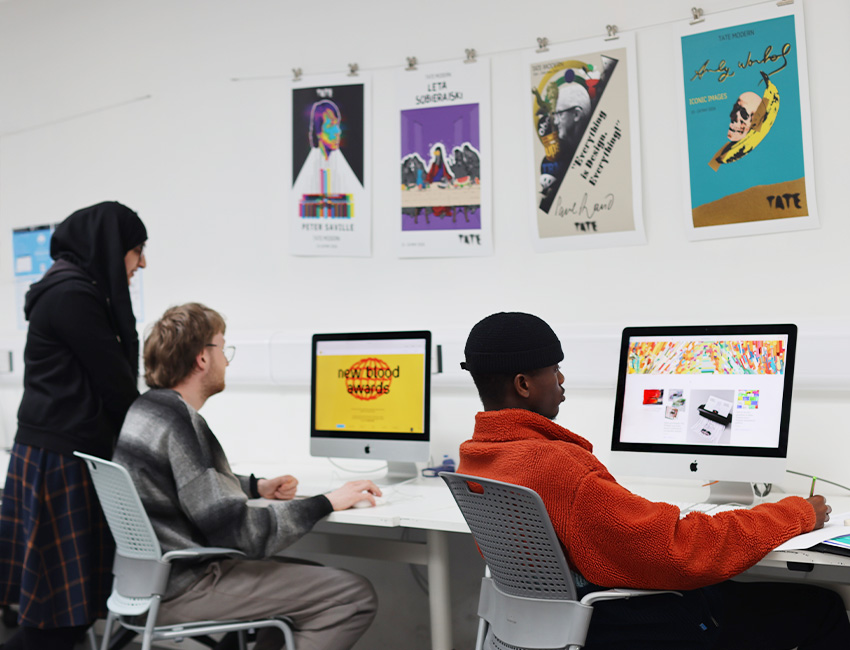At Worcester, you’ll gain real-world experience by working on live briefs, experimenting with materials, and developing your own creative style in a supportive studio environment.
in the UK for art and design graduate prospects
for Graphic Design courses in the UK
University of the Year finalist
Recognised for our graduate success, we’re shortlisted for University of the Year in the Times Higher Education Awards 2025.
Overview
Studying Graphic Design and Illustration together gives you the structure and clarity of design, and the creativity and storytelling of illustration. Graphic Design teaches you how to communicate ideas clearly through layout, typography and branding, while Illustration helps you bring personality and emotion to your work through drawing and image-making.
You’ll learn to design with purpose and develop your own expressive visual style. This combination is especially powerful in industries where design and illustration work side by side, such as publishing, advertising, packaging, editorial design and digital media.
The course is built around practical, hands-on learning. You’ll start by building core skills in drawing, design and visual storytelling, using industry-standard software and techniques. As you progress, you’ll have the freedom to experiment, discover your strengths, and shape your own creative direction through a mix of structured projects and optional modules. Whether your interests lie in printmaking, digital illustration, multimedia or concept development, you’ll gain a broad, adaptable skillset that prepares you for real-world creative work.
Throughout the course, you’ll work on live briefs set by real clients – including charities, publishers and cultural organisations – giving you valuable experience and helping you build a strong portfolio. You’ll also have opportunities to exhibit your work, enter competitions, and visit design studios to meet professionals working in the industry.
Course content
This flexible course gives you the opportunity to shape your learning experience by choosing optional modules that reflect your interests and career goals, while studying a core set of mandatory modules designed to give you the skills and experience to thrive in the creative industries.
We regularly review our courses to reflect the latest research and developments in the subject area, as well as feedback from students, employers and the wider sector. As a result, modules may change to ensure the course remains current and relevant.
Optional modules will run if enough students choose to study them. It is not guaranteed that all modules will be offered every year.
Optional modules
Careers
The creative industries are expanding rapidly, driven by the growing cultural importance of visual media. There are more opportunities than ever in areas like illustration, animation, games, film, publishing, and digital marketing – and with that comes a rising demand for imaginative visual storytellers who can connect with audiences across platforms.
This course prepares you for that evolving landscape by helping you build both creative and technical skills that employers value. You’ll learn how to craft emotional narratives through illustration and design visuals that grab attention and communicate clearly. These are essential qualities in fields like branding, advertising, editorial design, and concept development. Whether you're working with print, digital, or multimedia formats, the ability to tell stories, influence perception, and create meaningful visual experiences is at the heart of what employers are looking for.
Through a mix of practical projects, live client briefs, and portfolio development, you’ll have the real-world experience and a broad, adaptable skillset needed for a successful career in the creative industries.
After you graduate, you could be a:
- Concept artist
- Editorial illustrator
- Packaging designer
- Creative consultant
- UX/UI designer
- Art director
- Brand designer
Opportunities to progress
Opportunities to progress onto postgraduate study at Worcester include our Creative Media MA and Art and Design MPhil/PhD. If you’re looking to pursue teaching as a career you may be interested in our PGCE Primary or PGCE Secondary (Art and Design) courses.
Arts Alumni - Jess Mason
Course highlights
Teaching and assessment
You’ll explore graphic design and illustration through studio tutorials, group discussion, seminars and workshops.
You’ll produce a professional portfolio, zines, online projects, proposals, learning journals, reflective pieces, and solo and collaborative exhibitions.
Teaching and assessment contents
Graphic design
You are taught through a combination of: taught sessions, workshops, individual tasks and occasional small and large group tasks. In addition, you may also witness visiting speakers and client meetings in years 2 and 3 as we scale up your involvement in real/live projects.
In addition, meetings with personal academic tutors are scheduled on at least 4 occasions in the first year and three occasions in each of the other years of a course.
You have an opportunity to develop your existing skills in design, visualising, mac skills (around the latest versions of the Adobe Suite) as well as your skills in liaising with and presenting to clients. As well as your academic learning we'll look to put on supporting/linked study visits where appropriate, visiting lectures from professionals across a range of related mediums and client meets and presentations.
You'll also have the opportunity to attend specialist trips to events, museums and sites linked to your studies.
Illustration
You are taught through a combination of interactive workshops, lectures, on-site practical activities and studio practice. Interactive, studio-based sessions are intended to enable learning through integrated research led teaching which directly informs the practical based activity. The studio- based practical's are focused on developing image making skills, visual problem solving and developing a unique, personal visual language. Working in collaboration with peers is also embedded within sessions through group project work. Teaching is focused on delivering upon the University’s graduate attributes.
Social responsibility- Many Level 6 students initiate projects that are focused on solving problems through design, such as educational tools for children or raising awareness of environmental challenges. Staff research projects SEA CHANGE project is being used as a learning resource which promotes ocean literacy and supports United Nations Sustainable Development Goal UNSDG14 Life Below Water. Previous staff research project MIGRATIONS is also being used as a reference for Level 6 students’ independent project.
Reflective and resilient lifelong learning- Students reflect on their work on a weekly basis: writing blogs, critical reports and making presentations which also develops a sense of resilience when receiving verbal feedback and questions about their work. The development of a studio culture where students attend extra curricula activities and industry talks, encourages and facilitates a deep enquiry into the subject of illustration.
Problem solving- Different approaches to tackling assignments are explored throughout the course which results in students developing an individual approach to understanding the problem and solving it through a design process.
Teamwork and effective communication- Collaborative projects are embedded into several modules and students work together to plan and curate exhibitions at levels 5 and 6.
Digital citizenship- Industry standard software is taught at level 4 and 5, providing students with skills that can be applied to all future modules. The constant use of the VLE (Blackboard) to communicate with students and store learning materials enables an awareness of how to use these platforms to support learning. As all work is now submitted through Cloud storage and requires scanning/photographing, all students become skilled in presenting work online.
In addition, meetings with personal academic tutors are scheduled on at least four occasions in the first year and three occasions in each year of the subsequent years.
Entry requirements
UCAS tariff points required: 104
| Qualification | Grade |
|---|---|
| A-level | BCC |
| BTEC National Extended Diploma | DMM |
| T-level | Merit |
We do accept Access to HE Diplomas and other qualifications which may not exactly match the combinations above. Work out your estimated points with the UCAS tariff calculator.
Any questions?
If you have any questions about entry requirements, please call our Admissions Office on 01905 855111 or email admissions@worc.ac.uk.
Fees
Fees contents
UK and EU students
In 2026/27 the standard fee for full-time home and EU undergraduate students on BA/BSc/LLB degrees and FdA/FdSc degrees is £9,790 per year.
Tuition fees are reviewed annually and may increase each year for both new and continuing students.
For more details on course fees, please visit our course fees page.
International students
In 2026/27 the standard tuition fee for full-time international students enrolling on BA/BSc/LLB degrees and FdA/FdSc degrees is £17,200 per year.
Tuition fees are reviewed annually and may increase each year for both new and continuing students.
For more details on course fees, please visit our course fees page.
How to apply
How to apply contents
Applying through UCAS
UCAS is the central organisation through which applications are processed for full-time undergraduate courses in the UK.
Read our how to apply pages for more information on the application process, or if you’d like to apply for part-time study.
Graphic Design and Illustration BA (Hons) - W292
Contact
If you have any questions, please get in touch. We're here to help you every step of the way.


Admissions Office
admissions@worc.ac.uk01905 855111More to explore
Open Days
Visiting us is the best way to get a feel for student life at the University of Worcester.

The City of Worcester
Worcester is a welcoming university city with great transport links and plenty of student parking.

Accommodation
Benefit from our accommodation guarantee. We have rooms on campus to suit every budget including en-suite options.

